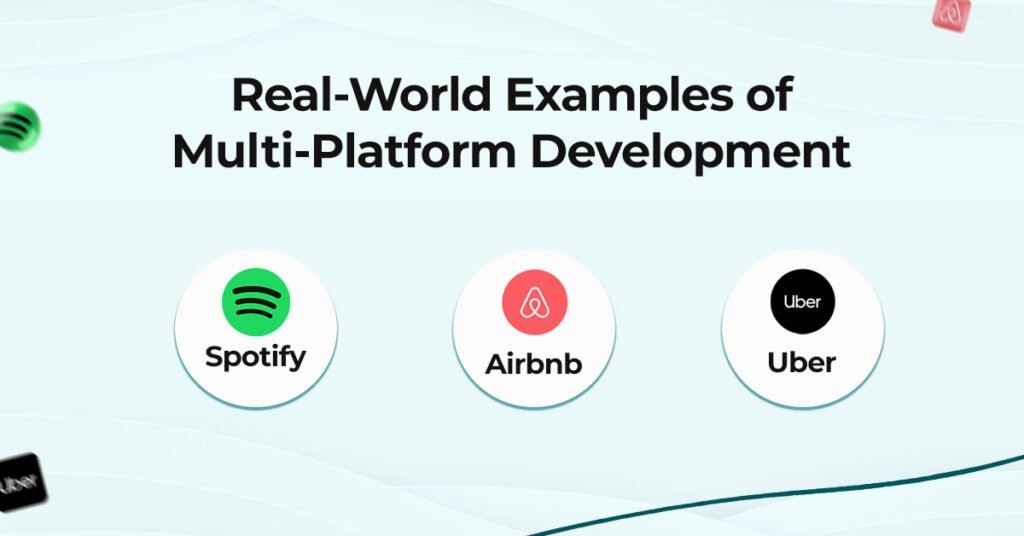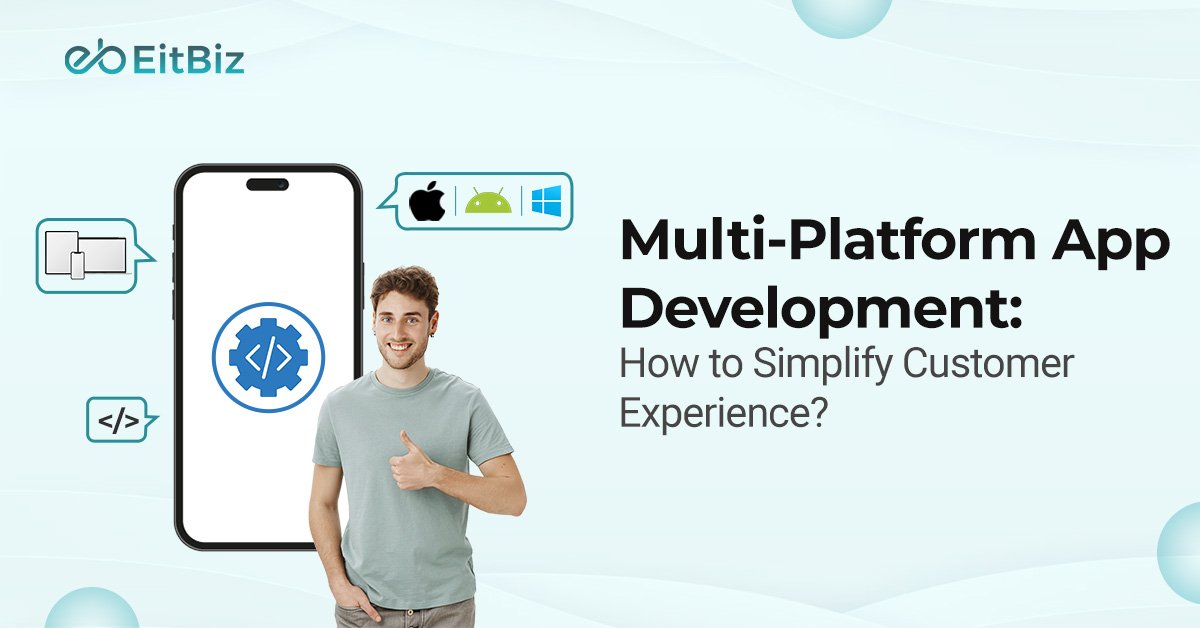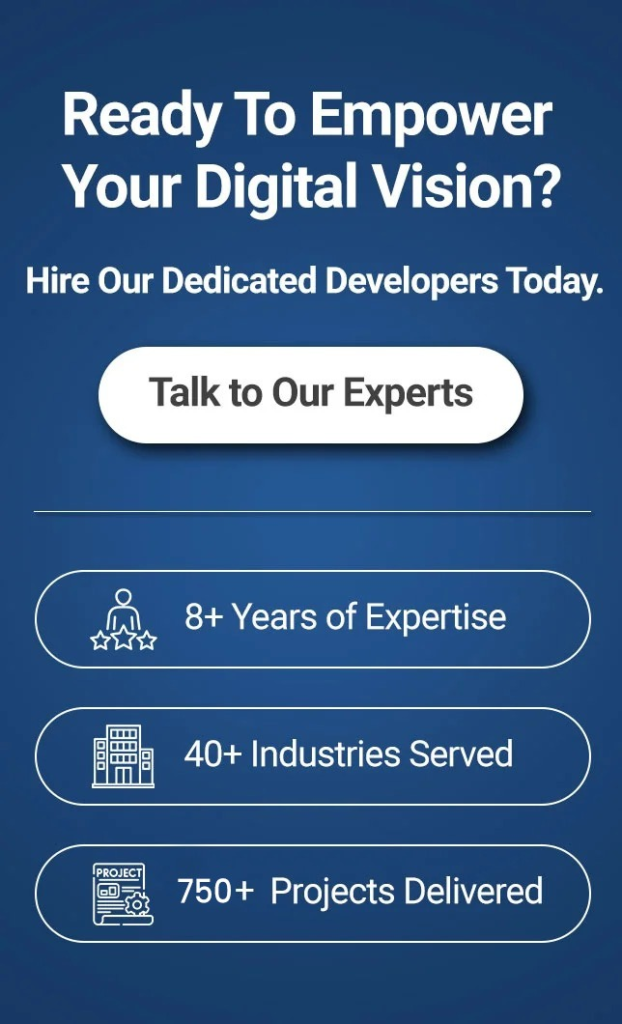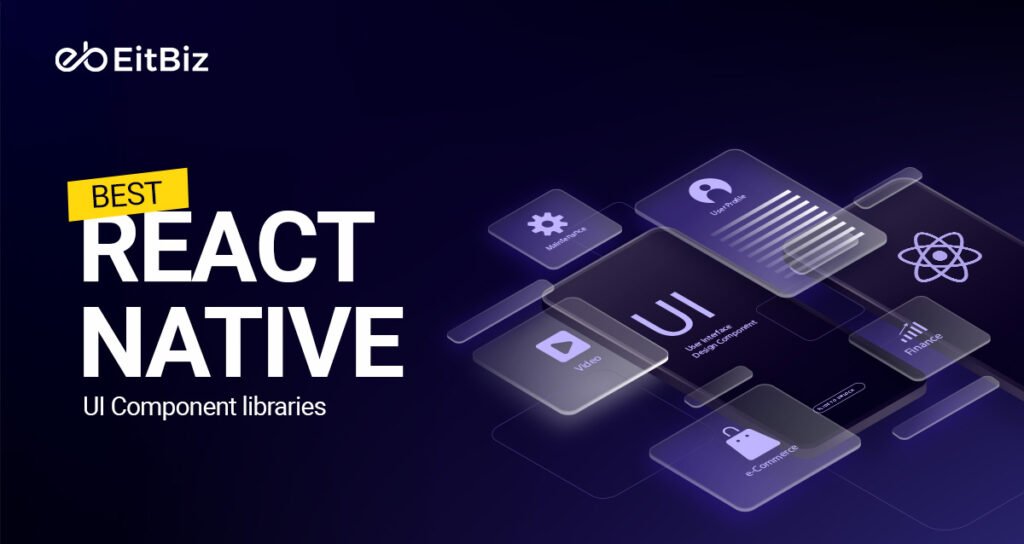It’s 2025!
Reaching a wide range of audience is incredibly quintessential!
And if you’re targeting iOS users without acknowledging your Android fan base, you might lose out on your potential customers.
This is where the importance of cross-platform mobile development!
To put it simply, “Cross-Platform mobile app development” refers to the app development framework that allows developers to build an app that can seamlessly run on both Android and iOS.
With such multi-platform app development support, its demand is significantly skyrocketing and the facts don’t lie!
- The cross-platform app development market is expected to reach a size of approximately $546.7 billion by 2025. (Source: Persistence Market Research).
- Flutter is predicted to lead the market with the highest adoption rate among developers due to its seamless cross-platform capabilities and rich UI features.
- 1 out of 3 of developers are either already using or planning to adopt cross-platform development frameworks for mobile app development. (Source: Statista).
Sounds surprising, doesn’t it?
If you’re planning to deliver a seamless user experience, consider “multi-Platform” app development is a must!
Without further ado, let’s dive in!
What Is Cross-Platform Development?
To put it simply, Cross-platform app development refers to the mobile app development technique where developers use a single codebase that can run on multiple platforms, such as iOS, Android and web browsers.
- Cost-Efficiency: When your team of developers efficiently leverage a single codebase, they won’t only save time but also significantly reduce maintenance costs to a greater level.
- Faster Time to Market: Cross-platform tools and frameworks enable quicker development cycles, allowing you to launch your app sooner.
- Consistent User Experience: One of the major highlights of multi-platform app development, you can rest assured that you will significantly deliver consistent user experience across all platforms, which enhances brand identity and user satisfaction.
The Importance of Simplifying Customer Experience
No matter what business you’re in, you cannot overlook the importance of Customer experience (CX). The overall CX encompasses everything a customer interacts with, from the website or mobile app they use to the customer service they receive. A great CX drives customer loyalty, increases conversion rates, and ultimately contributes to business growth.
However, delivering a consistent and simplified experience is not without its challenges. Customers today expect:
- Consistency: They want to interact with your brand seamlessly across all devices and platforms, whether they are browsing on a desktop at work or using a mobile phone on the go.
- Personalization: Customers want a tailored experience that reflects their preferences and behaviors, irrespective of the device they’re using.
- Ease of Use: An intuitive and user-friendly experience that requires minimal effort to navigate and interact with.
- Speed: Instant access to the services and features they want without long loading times or delays.
Why Should You Consider Cross-Platform Mobile App Development For Your Business?

#1. Consistent User Experience
Providing a uniform experience across platforms helps in building brand recognition and trust. Customers appreciate when they can seamlessly transition between devices without encountering inconsistencies.
#2. Increased Customer Engagement
A cohesive experience encourages users to interact more frequently with your brand. For instance, 72% of consumers prefer to connect with brands through multiple channels, indicating a desire for integrated experiences. (Source: Iterable)
#3. Enhanced Customer Retention
Delivering a seamless experience across platforms can lead to higher customer retention rates. Brands using cross-channel marketing strategies have seen up to 89% customer retention, significantly higher than those using weaker strategies. (Source: Flare Lane Blog)
#4. Improved Data Collection and Analysis
Multi-platform development allows for comprehensive data collection across various touchpoints. This holistic view of the customer journey enables businesses to make informed decisions and tailor their offerings to meet customer needs effectively. (Source: Piwik PRO).
What are the Popular Cross-platform App Development Frameworks?
Cross-platform development offers many benefits. Yet, you can only get all of them with the right framework. Which should you choose? Let’s dive in!
1. Flutter
Flutter is one of the popular yet widely used UI toolkits that allow developers to build responsive, performance-oriented, and secure mobile, web, and desktop applications from a single codebase. It uses the Dart programming language and is known for its fast development cycle and expressive UI components. Just a couple of years ago, 46% of software developers worldwide utilized Flutter, making it the most popular cross-platform mobile framework. (Source: Statista).

2. Ionic
Ionic is a framework that uses web technologies like HTML, CSS, and JavaScript to build cross-platform applications. It provides a library of mobile-optimized UI components and tools for building high-quality mobile and desktop apps.
3. Xamarin
Acquired by Microsoft, Xamarin allows developers to build cross-platform applications using C# and the .NET framework. It provides a single codebase for iOS, Android, and Windows applications, with access to native APIs. In 2023, 8% of developers utilized Xamarin.
4. React Native
React Native was created by Facebook (now Meta) and launched in 2015. It helps developers who use React.js to build mobile apps with dynamic and responsive interfaces. Unlike other cross-platform frameworks, React Native uses a native rendering engine, which allows apps to have a look and feel that’s similar to native iOS and Android apps.
5. SwiftUI
SwiftUI is Apple’s modern framework for building user interfaces across iOS, macOS, watchOS, and tvOS. It uses declarative syntax, enabling developers to design intuitive and responsive UIs with less code. SwiftUI integrates seamlessly with Swift, supports live previews in Xcode, and simplifies creating adaptive, reusable, and visually appealing app layouts.
What are the Ways to Implement Multi-Platform App Development?
To effectively simplify the customer experience through multi-platform development, consider the following steps:
- Understand Your Customer Journey: Map out how customers interact with your brand across different platforms to identify touchpoints and areas for improvement.
- Choose the Right Development Frameworks: Select development frameworks that support cross-platform functionality, such as Flutter, which is used by 46% of software developers. (Source: Statista)
- Ensure Consistent Branding and Messaging: Maintain uniform branding and messaging across all platforms to reinforce brand identity and build trust.
- Leverage Cross-Platform Analytics: Utilize analytics tools that provide insights into user behavior across platforms, enabling data-driven decisions to enhance the customer experience. (Source: Piwik PRO)
- Continuously Optimize: Regularly assess and refine your multi-platform strategy based on customer feedback and analytics to ensure it meets evolving expectations.
Real-World Examples of Multi-Platform Development Enhancing Customer Experience

Spotify
Spotify offers a seamless music streaming experience across various platforms, including mobile apps, desktop clients, and web browsers. By using multi-platform development, Spotify ensures that users can access their playlists, discover new music, and enjoy a consistent experience, whether they’re listening on their smartphone, laptop, or desktop. The company’s ability to provide a unified experience across platforms is one of the reasons why it has become one of the most popular music streaming services worldwide.
{Also Read: How to Create a Music Streaming App like Spotify?}
Airbnb
Airbnb has implemented multi-platform development to offer a cohesive experience for travelers and hosts. The app allows users to search for properties, book stays, and manage reservations from multiple devices. Whether users are on their mobile phone or browsing the website on a laptop, they receive the same seamless experience. The integration of features such as synced notifications, booking history, and account details ensures that users always have access to the same personalized content.
Uber
Uber’s multi-platform development strategy ensures that users can book rides, track drivers, and manage accounts seamlessly across mobile and web platforms. Whether using the app on a smartphone or accessing the web portal, users can enjoy a consistent experience, making it easy to get around no matter where they are.
Final Thoughts
There are many other frameworks available for app development, but the ones we’ve discussed are among the most popular choices for 2025.
At EitBiz, we are a leading cross-platform mobile app development company that uses these frameworks and other technologies to create fast, reliable cross-platform apps. Whether you’re looking to develop an app for both iOS and Android or need a solution that works across different devices, we have the expertise to help.
If you have an app idea, feel free to reach out and discuss it with us – we’d love to help bring your vision to life!







